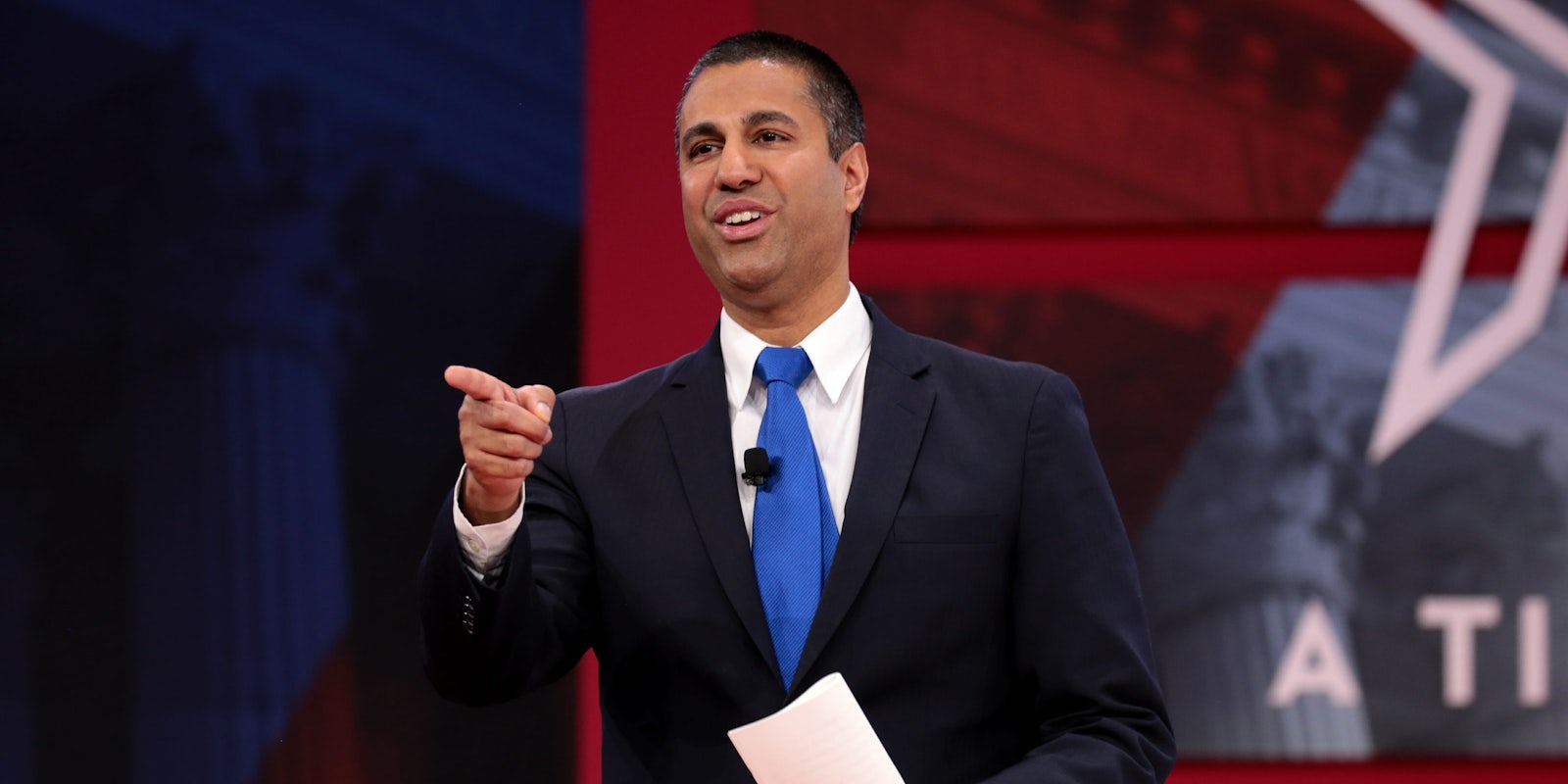An embattled government program to help rural Americans connect to broadband service has just gained new life.
In a surprise act of benevolence by Ajit Pai, the controversial FCC chairman said on Wednesday he will secure a 90-day extension of the challenge window for the agency’s broadband availability map. The map will be used by the Federal Communications Commission (FCC) to allocate $4.53 billion to support rural areas that lack unsubsidized 4G LTE service as part of its Mobility Fund Phase II plan.
This extra time would help ensure millions of rural Americans who currently lack broadband service will be first in line to receive support through the Mobility Fund program. You can read the full text of @AjitPaiFCC’s letter here: https://t.co/ggn2Tzt58D pic.twitter.com/75nluylZK1
— Senator Roger Wicker (@SenatorWicker) May 30, 2018
This move was a response to a letter written by a coalition of 30 bipartisan senators on Tuesday expressing their concern over the map, which aimed to show areas eligible for Mobility Fund Phase II money. The map, updated in February, seven years after its initial release, failed to address many of its core issues, instead reporting non-existent competitors and unaccessible speeds, and excluding pricing data.
This week I joined a bipartisan group of 30 senators in urging @FCC to extend the eligibility challenge process for a map that ensures rural internet access availability throughout #AL & the nation. @AjitPaiFCC has now granted the request. Excellent news! https://t.co/EFee7uyj1g
— Richard Shelby (@SenShelby) May 31, 2018
The relaunch was an attempt by the FCC to provide a “key source of broadband deployment information” and “close the digital divide,” according to a statement released by the agency. Pai said that directing subsidies to underserved areas was one of his priorities as FCC chairman and that there would be a “robust challenge process to identify the areas most in need of service.”
In their letter, the senators, led by Sen. Roger Wicker (R-Miss.) and Sen. Maggie Hassan (D-N.H.), urged Pai to extend the challenge window by 90 days. “[W]ith less than 100 days remaining and additional state outreach presentations not yet completed, MFII challengers will struggle within the current timeframe to provide requisite information that will correct significant flaws in the current map,” they wrote. They hoped the improvement would allow adequate time for state, local, and tribal governments to participate in the challenge process and prevent wasteful spending.
H/T DSL Reports


